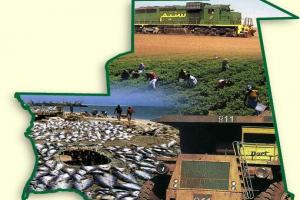
Entrepreneurship is a main lever for the development of a modern market economy, in particular through the creation of small and medium-sized enterprises (SMEs), which help add value, offer more job opportunities and diversify budgetary resources.
The favorable environment for the creation of these (SMEs) is considered by international economic rankings as an essential indicator for improving the business climate of a country.
The current state of things
While in the past decades it was placed in the last places on the rankings, Mauritania was launching, in recent years, a strategy aimed at improving the environment for economic activities. This strategy has led to considerable progress, especially at the legal level, and has facilitated the creation of SMEs through the single window.
According to official data, this strategy has motivated entrepreneurs to create hundreds of SMEs, in several economic sectors, mainly service provision and general trade, but also industry and industrial solutions.
The industrial field
The branch specialized in industry, in general, attracted a lot of investment in several industrial fields, properly mobilized and led by national entrepreneurs experienced in their fields.
These industrial activities focus primarily on manufacturing industries, engineering, food industry, agribusiness, recycling and industrial solutions. These areas have recently seen the appearance and establishment of several national and international companies, which are capable of create a nucleus for an industrial market in Mauritania.
Industrial enterprises will add more benefits to the national economy. They help to develop natural resources, create more job opportunities, increase tax revenues and diversify economic activities.
The development of this industrial entrepreneurship is an essential factor for increasing growth, reducing the unemployment rate and achieving all the objectives of economic recovery, post covid19.
Perspectives and challenges
Entrepreneurship development programs, launched by the State and its spezialed offices, must take into account the major challenges, which prevent the advancement of the industrial sector in Mauritania.
The challenges in this area concern, above all, the financial difficulties, the lack of training and qualification of the workforce. This requires the provision of a reliable line of financing to industrial entrepreneurs, as well as the creation of a training center to train the workforce and improve national skills in the industrial field.
To be sure, redressing these difficulties will allow national industrial entrepreneurs to overcome the challenges and actively participate in the prospects for the exploitation of natural resources, creating more job opportunities for young Mauritanians.




